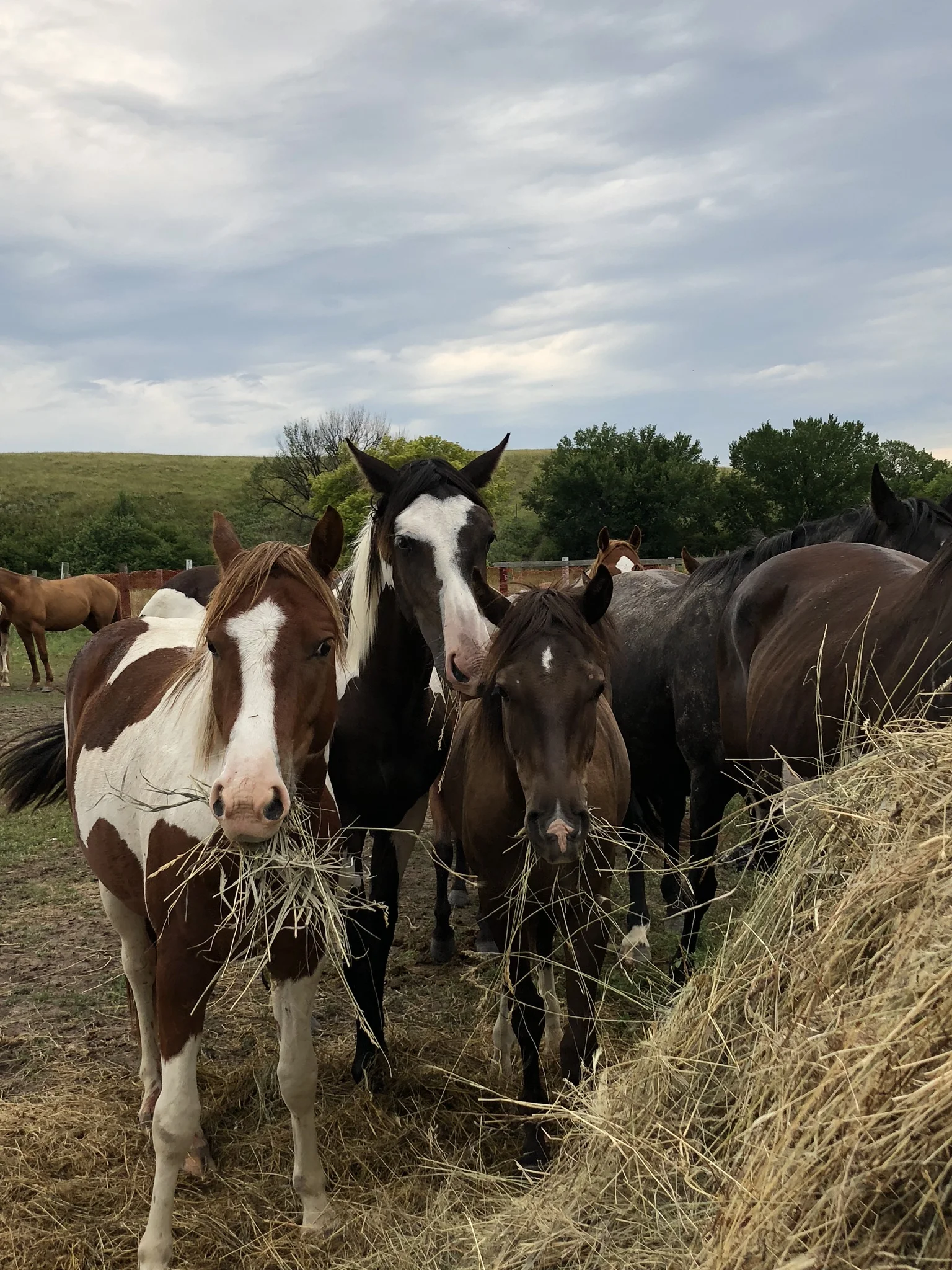Canker is an uncommon condition affecting a horse’s hooves, and its cause has not been definitively proven. Many veterinarians suspect that canker stems from a bacterial or viral infection in the foot.
Rain Rot in Horses
It’s a cool rainy fall day, and you’re looking forward to a nice ride in the indoor arena on your beloved equine pal. Perhaps you’ve had a busy work week and haven’t seen him in a few days. As you bring him in from the pasture and park him in the cross ties, you absently run your hand along his back and give him a loving pat. To your dismay, your horse’s typically fuzzy soft coat feels lumpy and crusty and he flinches at your touch. What on earth is this?
Bute, Banamine, or Equioxx? Which NSAID is right for the job?
Scratches Treatment and Prevention
What To Do About Colic
Equine Biosecurity Measures
Dr. Alderman Travels to Pine Ridge Indian Reservation
The Sung Oyate (Horse People) is a group of veterinarians, veterinary students, farriers, and veterinary technicians that travel each summer to provide veterinary care to the equines on the Pine Ridge Indian Reservation. Dr. Alderman has traveled to South Dakota to work with the Sung Oyate for three years now.
Understanding PPID (Equine Cushing's Disease)
Methods of Equine Euthanasia
Simple At-the-Barn Exercises: Addressing Common Concerns in Equine Athletes
“My horse has no topline!”
When discussing a horse’s topline, we are typically looking at the visual relationship between the horse’s vertebral spinous processes and the epaxial muscles alongside the spine. These muscles function to extend the spine (picture a racehorse stretched out in a full gallop, with his hind limbs pushed out behind him and his forelimbs stretched out ahead).
Equitarian Initiative’s Workshop - Costa Rica Recap
This January, I was very fortunate to receive a scholarship from the American Association of Equine Practitioners (AAEP) to attend the Equitarian Initiative’s Workshop. The workshop’s objectives are to provide an understanding of the critical role of working equids around the world, discuss examples of successful equitarian programs, and allow participants to apply their individual skills in a field setting.



































